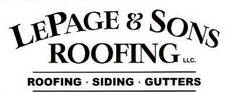When it comes to roofing, especially in areas like New Bedford, MA, which can experience its fair share of harsh weather, homeowners often wonder why some roofs seem to hold up better against wind damage than others. The answer lies in a variety of factors including roofing materials, installation techniques, and regular maintenance. Understanding these components can help ensure that your roof is as resistant to wind damage as possible.

The Role of Roofing Materials
Not all roofing materials are created equal when it comes to wind resistance. Some materials, like asphalt shingles, ceramic tiles, or metal roofing, have inherent qualities that make them more resilient. For instance, metal roofing, widely used across the Delmarva Peninsula and areas with similar climates, provides not only longevity but also significant resistance to wind. Its interlocking panels are designed to withstand high winds that would typically cause damage to other types of roofing materials.
Installation Techniques Matter
The way your roof is installed by your roofing contractor plays a critical role in its ability to withstand wind damage. Proper installation includes making sure that roofing materials are securely fastened. For example, shingles should be nailed correctly and not just adhered with roof cement. Special techniques, like employing starter strips at the roof’s edges where winds typically cause the most damage, can make a significant difference. Companies like LePage and Sons Roofing LLC in New Bedford, MA, prioritize these details, ensuring that roofs not only meet but exceed local building codes that are designed to mitigate wind damage.
Importance of Regular Maintenance
Regular maintenance cannot be underestimated when it comes to enhancing a roof’s wind resistance. Over time, minor issues such as loose shingles or degraded sealant can compromise the roof’s integrity. Regular inspections, particularly after severe weather events, can identify and address these vulnerabilities before they lead to significant damage. Companies operating in the Delmarva Peninsula, familiar with the rigors of local weather, underscore the importance of periodic checkups for maintaining a robust roofing system.
Architectural Design and Roof Shape
The design of a roof also influences its wind resistance. Roofs with a pitch of about 30 degrees tend to perform better under wind pressure compared to flat roofs or those with a high pitch. The shape of the roof matters as well; hip roofs, for example, have slopes on all sides, reducing the chances for wind to catch a large, flat surface area. This architectural feature disperses wind energy more evenly, thereby offering enhanced protection against wind damage.
Enhanced Roofing Systems and Components
Advanced roofing systems that include features like reinforced underlayment or wind-resistant shingles offer additional protection. These components are designed to provide an extra layer of defense, preventing wind from penetrating the roof system and minimizing the likelihood of roof repair. For those living in areas prone to severe weather, like New Bedford, MA, investing in these upgraded materials and systems can be a wise decision to ensure long-term durability and resistance to wind.
Understanding why some roofs are less prone to wind damage highlights the importance of material selection, professional installation, and regular maintenance. Homeowners in New Bedford, MA, and similar locations should consider these factors carefully when choosing a roofing solution. By prioritizing quality and attention to detail, LePage and Sons Roofing LLC ensures that your roof is equipped to handle whatever nature throws its way, offering peace of mind and safeguarding your home against the challenges of severe weather.
For homeowners on the Delmarva Peninsula and beyond, it’s clear that the right approach to roofing can make all the difference in wind resistance. Prioritizing these considerations not only protects your home but also adds to its value by ensuring your roof’s longevity and integrity. To request a roof estimate, call us at (508) 295-6483 or fill out our online form to schedule an appointment.
